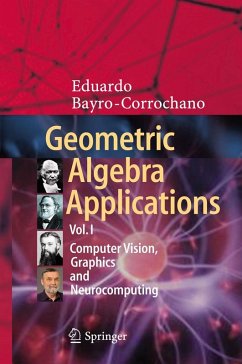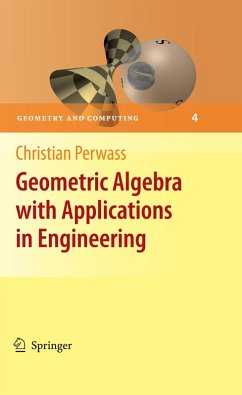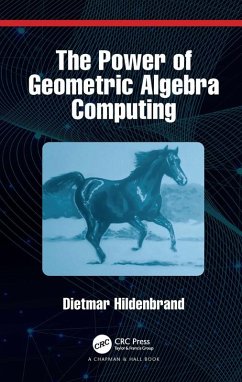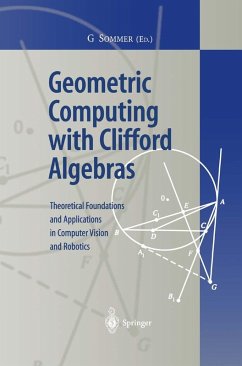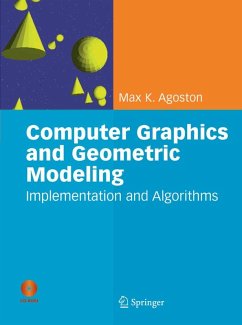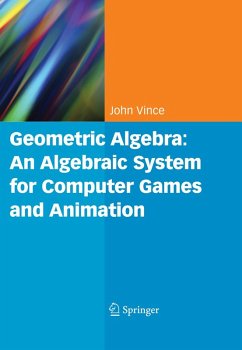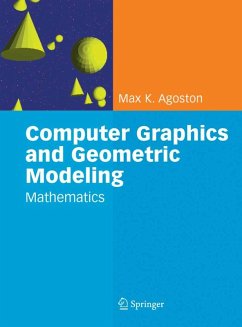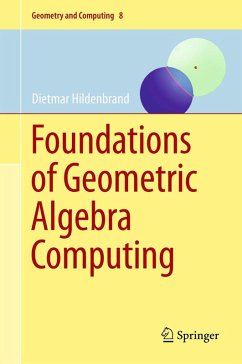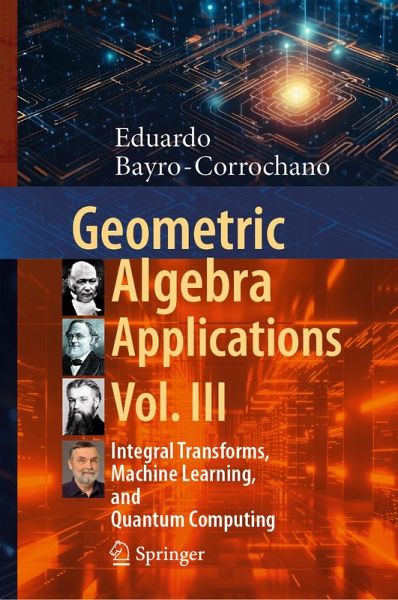
Geometric Algebra Applications Vol. III (eBook, PDF)
Integral Transforms, Machine Learning, and Quantum Computing
Versandkostenfrei!
Sofort per Download lieferbar
176,95 €
inkl. MwSt.
Weitere Ausgaben:

PAYBACK Punkte
88 °P sammeln!
The goal of Geometric Algebra Applications Vol. III: Integral Transforms, Machine Learning, and Quantum Computing is to present a unified mathematical treatment of diverse problems in the general domain like Clifford Fourier Transforms, Deep Learning and Geometric Algebra Convolutional Neural Networks, Quaternion Quantum Fourier Transform and Geometric Quantum Computing. Topics and features · Introduces nonspecialists to Clifford, or geometric algebra and by example encourages the reader to learn to compute using geometric entities and geometric formulations. · A study in depth for applicati...
The goal of Geometric Algebra Applications Vol. III: Integral Transforms, Machine Learning, and Quantum Computing is to present a unified mathematical treatment of diverse problems in the general domain like Clifford Fourier Transforms, Deep Learning and Geometric Algebra Convolutional Neural Networks, Quaternion Quantum Fourier Transform and Geometric Quantum Computing. Topics and features · Introduces nonspecialists to Clifford, or geometric algebra and by example encourages the reader to learn to compute using geometric entities and geometric formulations. · A study in depth for applications of Lie group theory, Lie algebra, projective geometry, and the algebra of incidence using the conformal geometric algebra. · Features the computing frameworks of the linear model n-dimensional affine plane and the nonlinear model of Euclidean space known as the horosphere, and addresses the relationships of these models to conformal, affine, and projective geometries. · Includes a thorough study of Integral transforms: Quaternion and Clifford Transforms, quaternion analytic signal, monogenic signals, Hilbert transform, Riesz transform, Clifford Fourier Transform, Quaternion Wavelet transforms, Quaternion Quantum Fourier Transform, 3D Radon Transform and Hough-Transform in geometric algebra. · Color image processing using the color model HSV, Quaternion Split rotors and motors, and the space-time Lorentz transform. · Geometric neural computing using Split Quaternions, Geometric Algebra neural networks, Clifford Support Vector Machine and Neuro Control. · Thorough discussion of several tasks of computer vision, graphics, neurocomputing, and robotics. machine learning, Deep Learning and CNNs, and Geometric Quantum Computing using the geometric algebra framework. · 130 exercises and hints for the development of future computer software packages for extensive calculations in geometric algebra. An entire section is dedicated to explaining how one should write the subroutines in C++, Phyton, Matlab, and Maple to carry out efficient geometric computations in the geometric algebra framework. Furthermore, it is shown how program code can be optimized for real-time computations. The book is an essential resource for applied mathematicians, physicists, computer scientists, graphics engineering, AI and Machine Learning researchers, roboticists and mechanical and electrical engineers, neurocomputing researchers, neuroscientists, and quantum computing specialists. It clarifies and demonstrates the importance of geometric computing for building autonomous systems and pushes forward advances in geometric cybernetics research.
Dieser Download kann aus rechtlichen Gründen nur mit Rechnungsadresse in A, B, BG, CY, CZ, D, DK, EW, E, FIN, F, GR, HR, H, IRL, I, LT, L, LR, M, NL, PL, P, R, S, SLO, SK ausgeliefert werden.



